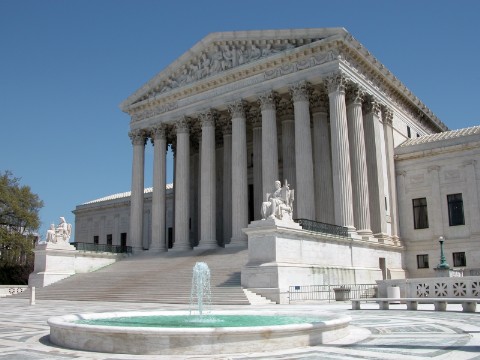 The Supreme Court on Wednesday issued a divided opinion in a case that raised an important issue of arbitration law: should an arbitrator or a judge decide whether an international treaty requires a private party to bring a commercial dispute before a judge prior to attempting arbitration? In BG Group PLC v. Republic of Argentina, the Court ruled 7-2 against Argentina, concluding that arbitrators acted within their power when they concluded that a British firm was not required to file suit in Argentina’s courts before seeking arbitration. Chief Justice Roberts, joined by Justice Kennedy, dissented; they argued that in signing the bilateral UK-Argentina investment treaty, Argentina agreed to arbitration only on condition that investors bring their disputes to an Argentine court first. But there was one point on which the justices agreed unanimously: Argentina has a sorry history of living up to its contractual commitments to investors. That point of agreement does not bode well for Argentina, which in two pending Supreme Court cases is asking the Court to permit it to invoke sovereign immunity as the basis for resisting repayment of sovereign debt.
The Supreme Court on Wednesday issued a divided opinion in a case that raised an important issue of arbitration law: should an arbitrator or a judge decide whether an international treaty requires a private party to bring a commercial dispute before a judge prior to attempting arbitration? In BG Group PLC v. Republic of Argentina, the Court ruled 7-2 against Argentina, concluding that arbitrators acted within their power when they concluded that a British firm was not required to file suit in Argentina’s courts before seeking arbitration. Chief Justice Roberts, joined by Justice Kennedy, dissented; they argued that in signing the bilateral UK-Argentina investment treaty, Argentina agreed to arbitration only on condition that investors bring their disputes to an Argentine court first. But there was one point on which the justices agreed unanimously: Argentina has a sorry history of living up to its contractual commitments to investors. That point of agreement does not bode well for Argentina, which in two pending Supreme Court cases is asking the Court to permit it to invoke sovereign immunity as the basis for resisting repayment of sovereign debt.
The case involved claims by a British firm, BG Group plc, that Argentina breached a natural gas distribution contract. Washington, D.C.-based arbitrators awarded BG Group $185 million in damages, and Argentina turned to American courts to overturn the award. It cited the terms of the UK-Argentina treaty as the basis for its claim that the arbitrators lacked jurisdiction to hear the case. The treaty provides that an investor asserting a claim under the treaty may not initiate arbitration until 18 months after filing a claim against Argentina in an Argentine court.
The arbitrators held that BG Group should be excused from complying with the 18-month litigation requirement. They noted that Argentina, after taking steps that essentially expropriated BG Group’s property, adopted a series of laws designed to block any BG Group lawsuit. They held that these laws, “while not making litigation in Argentina’s courts literally impossible, nonetheless hindered recourse to the domestic judiciary to the point where the Treaty implicitly excused compliance with the local litigation requirement.”
The Supreme Court summarily rejected Argentina’s argument that the arbitrators had exceeded their power in making that determination. It recited at length each of the measures Argentina had taken to restrict access to its courts. It then stated that while it did not necessarily agree with the arbitrators that those measures would make it “absurd and unreasonable” to mandate compliance with the 18-month litigation requirement, their interpretation of the treaty was nonetheless plausible in light of Argentina’s actions.
In his dissenting opinion, Chief Justice Roberts agreed with Argentina and the United States (which filed a brief supporting Argentina) that the UK-Argentina treaty required an aggrieved party to turn first to the courts of Argentina, and that doing so was a condition precedent to Argentina’s agreement to submit disputes to arbitration. Roberts nonetheless went out of his way to make clear that he was not endorsing Argentina’s conduct in this affair. He stated, “None of this should be interpreted as defending Argentina’s history when it comes to international investment. That history may prompt doubt that requiring an investor to resort to that country’s courts in the first instance will be of any use.”
The justices were thus unanimous in their apparent disapproval of Argentina’s checkered past in international financial markets. That disapproval is particularly problematic for Argentina’s ongoing efforts to persuade the Court to review a Second Circuit judgment that requires Argentina to abide by contractual commitments it made to holders of Argentina bonds. The appeals court judgment was based to a considerable extent on Argentina’s adoption of “Lock Laws” that absolutely barred certain bondholders access to Argentine courts for the purpose of collecting on defaulted bonds. The Court’s BG Group decision suggests that the justices may not look kindly on Argentina’s claims in cases where Argentina has manipulated access to its own courts. Moreover, the decision indicates that support for Argentina from the U.S. Solicitor-General will not by itself be enough for Argentina to carry the day.
Also published at WLF’s Forbes.com contributor page
